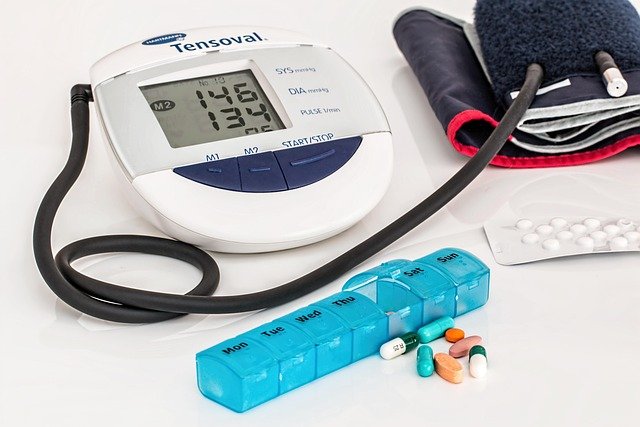Navigating Heart Disease: A Guide to Effective Care
Heart disease remains a global health challenge, impacting millions annually. Understanding its symptoms, diagnosis, and treatment options is crucial for managing this condition effectively. This comprehensive guide explores the multifaceted approach to heart disease care, emphasizing the importance of early detection and personalized treatment strategies. Discover how lifestyle modifications, medical interventions, and proactive health management can lead to improved cardiovascular health and overall well-being.

Recognizing Heart Disease Symptoms
Early detection of heart disease symptoms is vital for timely intervention and improved outcomes. While symptoms can vary, some common signs include:
-
Shortness of breath: Difficulty breathing, especially during physical activity or when lying down, may indicate heart problems.
-
Unexplained fatigue: Persistent tiredness that’s disproportionate to your activity level and doesn’t improve with rest could be a warning sign.
-
Edema: Swelling in the lower extremities, particularly the ankles and feet, may suggest compromised heart function.
-
Chest discomfort: Sensations of pressure, tightness, or pain in the chest are classic heart disease indicators.
Diagnosing Heart Failure
Heart failure, a serious condition where the heart struggles to pump blood efficiently, requires a comprehensive diagnostic approach:
• Physical assessment: Healthcare providers evaluate overall health, listening to heart and lung sounds, and checking for edema.
• Blood analysis: Specific markers can indicate heart stress or damage.
• Advanced imaging: Techniques like echocardiography, radiography, and MRI provide detailed cardiac structural and functional information.
• Exercise stress evaluation: These tests assess cardiac performance under physical exertion.
Heart Failure Treatment Strategies
Managing heart failure typically involves a multi-pronged approach:
-
Pharmacological interventions: Medications to enhance heart function, manage fluid retention, and regulate blood pressure are often prescribed.
-
Dietary adjustments: Limiting sodium intake and carefully managing fluid consumption are crucial.
-
Physical activity: A tailored exercise regimen, as advised by healthcare professionals, can improve heart health.
-
Advanced interventions: In severe cases, cardiac devices or surgical procedures may be necessary.
When to Seek Medical Attention
Prompt medical consultation is essential if you experience:
• Persistent breathlessness, particularly when resting or during minimal activity • Sudden, intense chest discomfort lasting more than a few minutes • Chronic fatigue interfering with daily life • Persistent lower extremity swelling • Ongoing heart rhythm irregularities • Recurring dizziness or fainting episodes
Early medical intervention can significantly improve heart disease outcomes, so don’t hesitate to consult a healthcare professional with any concerns.
Lifestyle Modifications for Heart Health
Effective heart disease management often requires significant lifestyle changes:
-
Heart-healthy nutrition: Emphasize a diet rich in fruits, vegetables, whole grains, and lean proteins. Minimize saturated and trans fats, and control sodium intake.
-
Regular physical activity: Aim for at least 150 minutes of moderate-intensity aerobic exercise weekly, following your doctor’s recommendations.
-
Stress reduction: Incorporate relaxation techniques such as mindfulness meditation or deep breathing exercises into your routine.
-
Smoking cessation: If you smoke, work with your healthcare team to develop an effective quitting strategy.
-
Alcohol moderation: If you choose to drink, do so in moderation as advised by your physician.
-
Weight management: Maintaining a healthy weight can significantly reduce cardiac strain.
The Role of Medications in Heart Disease Treatment
Pharmacological interventions are often crucial in managing heart disease:
• ACE inhibitors and ARBs: These medications help dilate blood vessels, reducing cardiac workload.
• Beta-blockers: These drugs help regulate heart rate and blood pressure.
• Diuretics: Often referred to as ‘water pills,’ these medications help manage fluid retention.
• Anticoagulants: These drugs help prevent potentially dangerous blood clots.
• Statins: These medications are instrumental in managing cholesterol levels.
It’s crucial to adhere to prescribed medication regimens and communicate any side effects to your healthcare provider. Never alter your medication routine without professional medical advice.
Conclusion
Managing heart disease requires a comprehensive approach combining lifestyle modifications, medication, and regular medical oversight. By recognizing symptoms early, seeking prompt medical attention, and adhering to personalized treatment plans, individuals with heart disease can significantly enhance their quality of life and reduce complication risks. Remember, your healthcare team is your most valuable resource for tailored advice and treatment strategies specific to your condition.
Note: This article is intended for informational purposes only and should not be considered a substitute for professional medical advice. Always consult with a qualified healthcare provider for personalized guidance and treatment.




